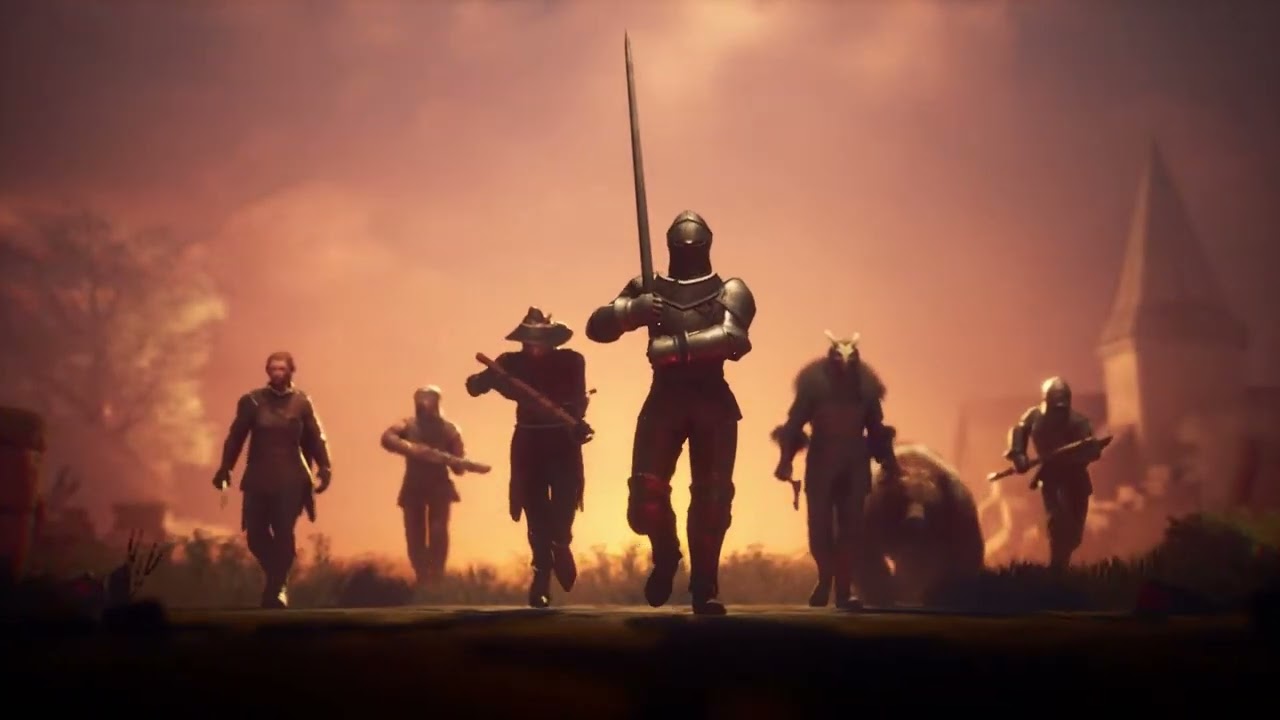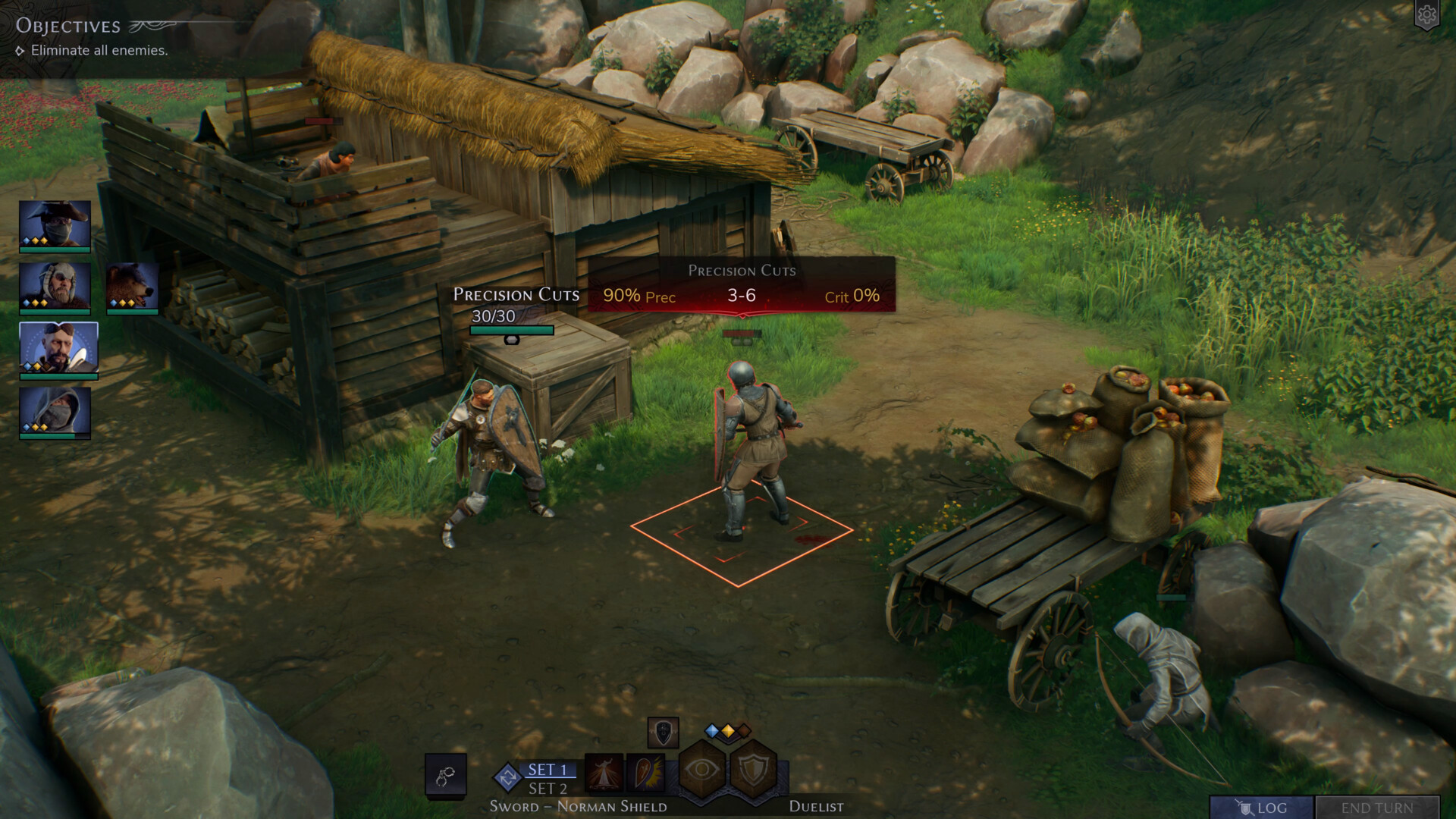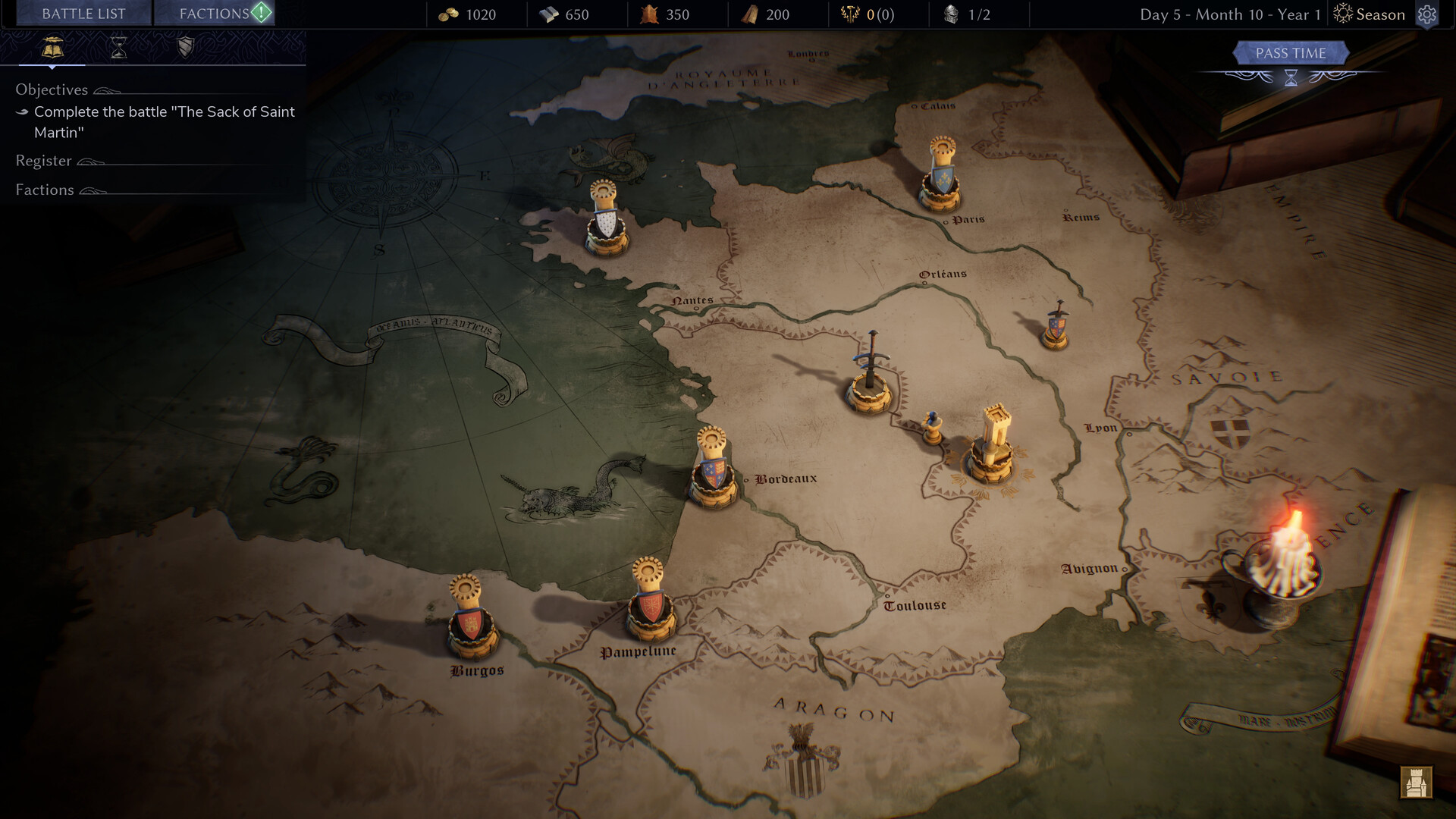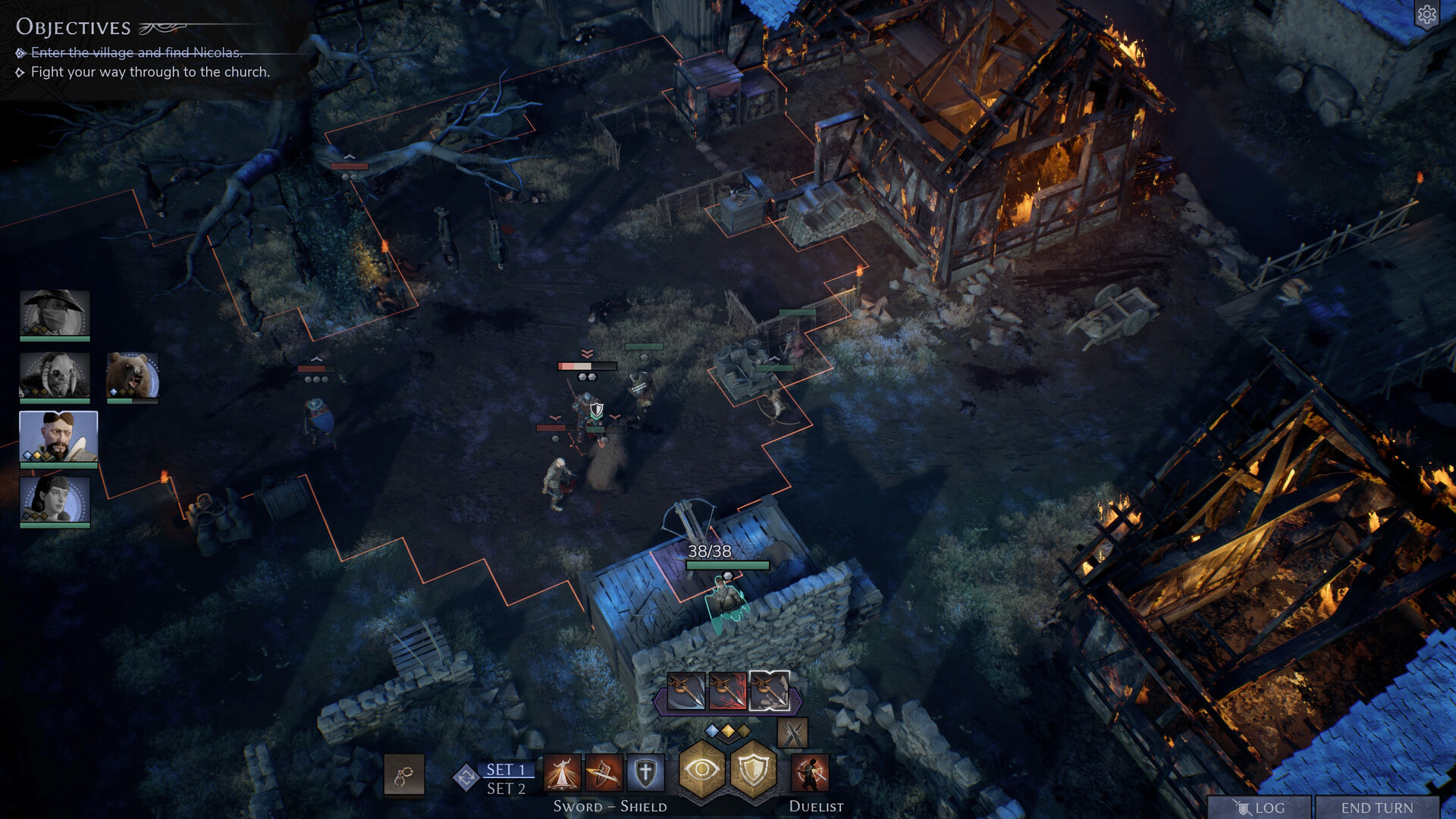Here’s a note for all developers out there: If you’re going to locate your game in a period of history or legend, and especially if it’s one where there isn’t an abundance of choices, then make sure that you actually do something about that period of history or legend. Earlier this year I found a “King Arthur” game to be an insult to King Arthur, and while Crown Wars: The Black Prince is somewhat better in its use of the Hundred Years War, it’s still not great.
In fact, Bladestorm, by Koei Tecmo, might have the Musou-like over-the-top aesthetics, but it’s vastly more true to the setting.
For one thing, Crown Wars almost doesn’t care about the conflict between England and France. That is to say, the entire point of the 100 Years War. So, for people who don’t know (and because this game won’t help you learn): The Hundred Years War actually took place over 116 years (1337 – 1453, and it wasn’t continuous. There were several periods of peace and truce, and the Black Death kinda focused people on other things than war for a while. Although there were times without battlefield action, the three main wars over that period are considered one ongoing conflict because the two belligerents didn’t change (though it was a multi-generational conflict across five generations of kings).
You might think that such a conflict would put a drain on both nations, but somewhat ironically they both emerged from the conflict vastly more powerful, with the conflict resulting in significant innovation and plenty of opportunities to refine tactics.
Anyhow, overall it was a pretty unpleasant time to be a normal person, and a great time to be a mercenary or successful knight. Crown Wars isn’t really interested in depicting any of the fascinating socio-cultural background of the era. In fact, it’s not really interested in much of anything to do with the Hundred Years War, other than giving all your characters medieval weapons and placing the battle maps across France. Sure the game name-drops some of the more famous figures and organisations of the time. But overall the game is more interested in being about the occult, and leaning heavily into the fantasy side of the medieval era. A better way to think about it might be “Game Of Thrones meets XCOM.”
In fairness I would probably play Game Of Thrones meets XCOM. Assuming it was made competently, I’d even love it. But if you’re going to deliver a 100 Years War game, I expect it to be a Hundred Years War experience. Something like A Plague Tale does an infinitely better job of being a 100 Years War game than this one, and it’s hard not to regret the missed opportunity here. Or to put it another way – if you make a Romeo & Juliet game, and then make Romeo & Juliet minor characters while making the game about some random buy called Mike winning a jousting tournament in Verona, the people that come to the game looking for Romeo & Juliet are going to find your game aggravating. Respect the material, developers. It’s all I ask.
Putting aside the misused coat of paint, Crown Wars does provide the basic XCOM action well enough. You start out with a decrepit little base and a handful of soldiers, across a couple of different classes. By sending them out on missions, you gain resources that can then be used to level up buildings in the base, and get better equipment for your characters. They start to level up and become powerful one-man armies, too.
The maximum you’ll be able to send into battle is six, and so you’ll need to level up each of the heroes well, because they’re no room in your party for dead weight. Eventually, you’ll find synergies between the character classes and your initially squishy team of level-1 fighters will become heavily armed whirling dervishes. Combat is turn-based, battle maps tend to be quite large, and the range of tactical abilities is quite solid.
So why did I find it all so dull and exhausting to play? It’s genuinely hard to put a finger on. As XCOM clones go, Crown Wars is perhaps a little derivative, but the turn-based action is still engaging, the ability to send war parties all around the place and the need to manage a growing base of operations adds a neat “grand strategy” quality, however light it is.
Yet I found myself dreading sessions with this game after a while, and I think it boils down to this: Crown Wars has the personality of a boil on the backside. The voice acting is so singularly woeful that it’s impossible to take the game seriously, yet the grim aesthetics and (admittedly excellent) finishing blow animations during combat make it seem like the developers were as desperate to make this grimdark as Warhammer 40K is.
And because I didn’t care about the characters of the context, the game was essentially asking me to commit to large skirmish maps – sometimes an hour long and featuring multiple battles, simply to enjoy the combat system. As I said, it’s functional and I didn’t encounter too many bugs while playing, but it is also not particularly innovative or stand out, either. The likes of Mario + Rabbids, Phantom Doctrine, and Achtung! Cthulhu Tactics are all far more effective as “XCOM clones” because in all cases the developers did a better job of integrating the game with the theme or playing around with the established formula in interesting ways. Crown Wars’ biggest problem is, simply, that it lacks an identity, yet asks players to commit an awful lot of time and energy to it.
I understand why the developers set Crown Wars: The Black Prince during the Hundred Years War. It’s a compelling era of European history and you inherently want to play it. It got me playing a game I otherwise would have glossed over because of the promise of its theme. The problem is that once you have someone’s attention this way, you need to deliver on what you’ve promised them. Crown Wars doesn’t quite get there and fails to fill the void with something memorable.














